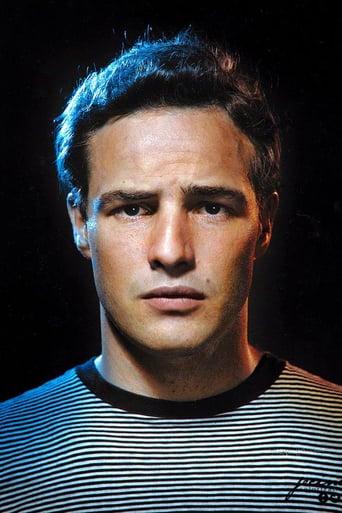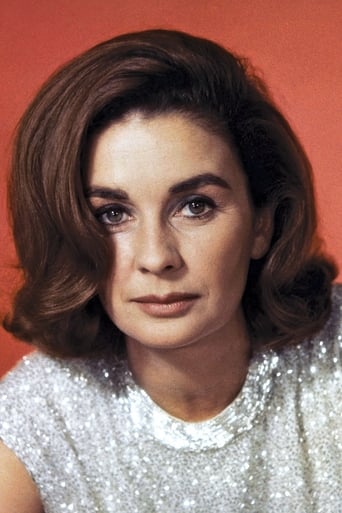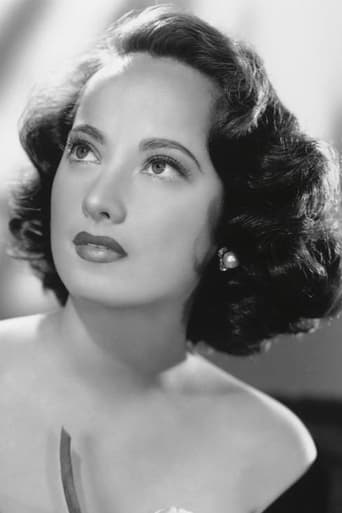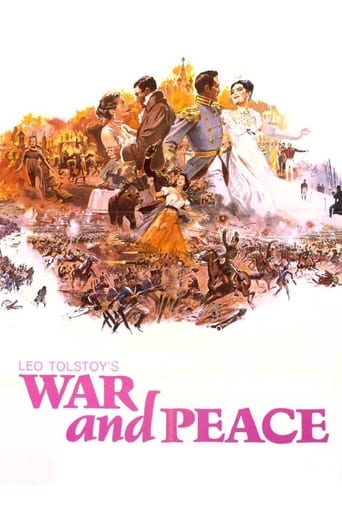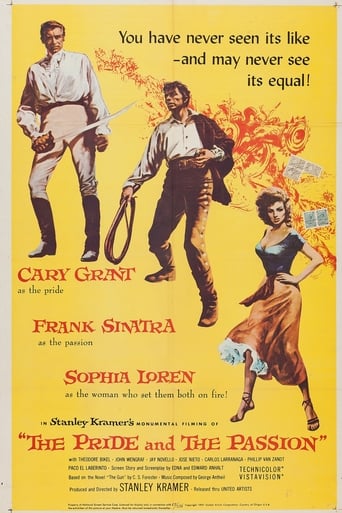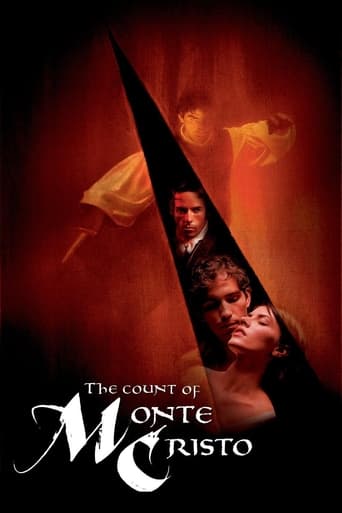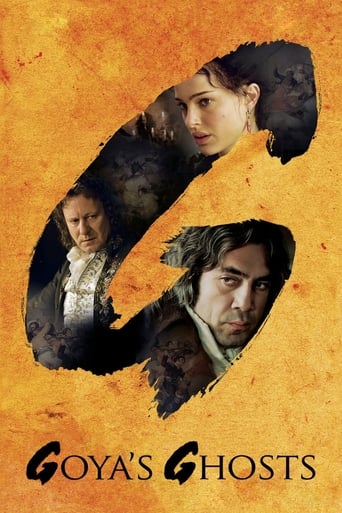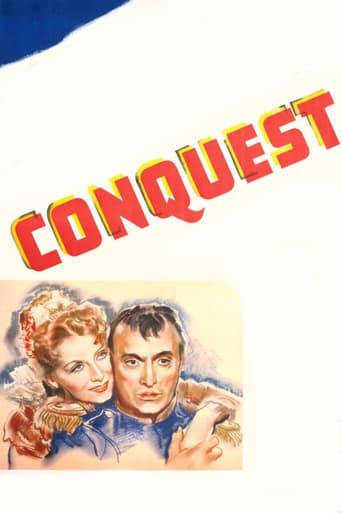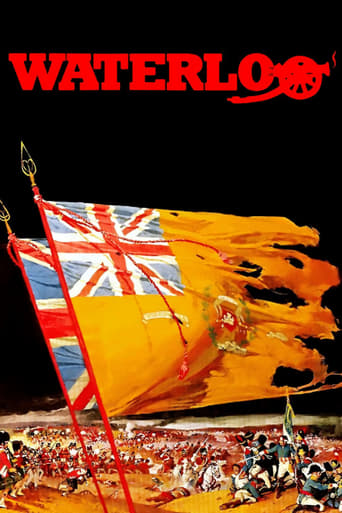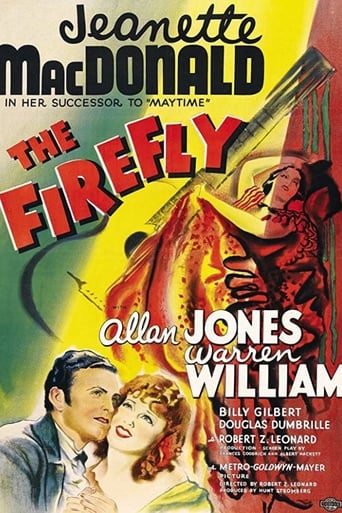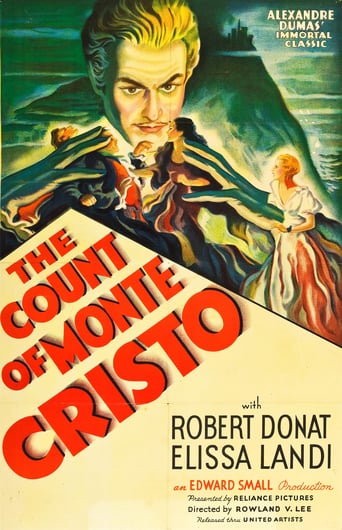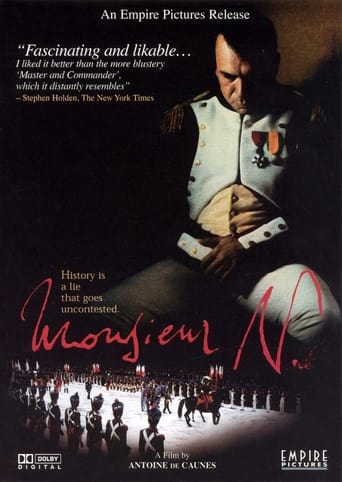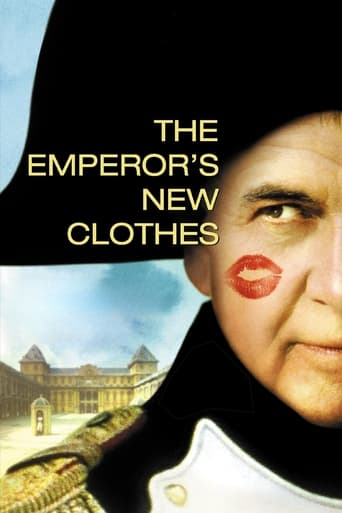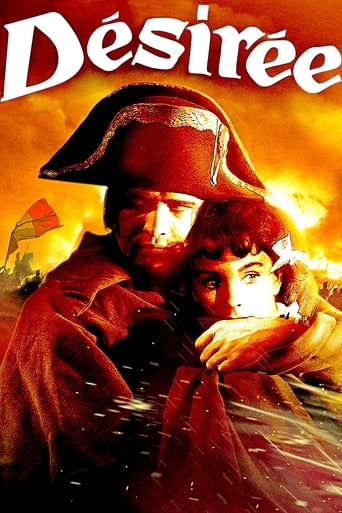
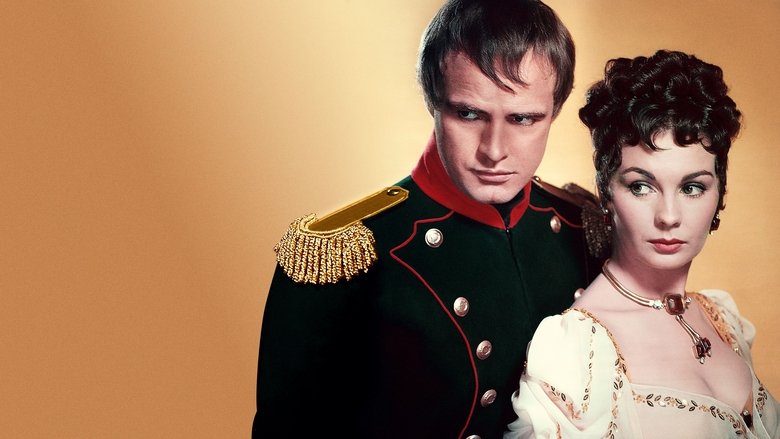
Désirée (1954)
In Marseilles, France in 1794, Desiree Clary, a young millinery clerk, becomes infatuated with Napoleon Bonaparte, but winds up wedding Genaral Jean-Baptiste Berandotte, an aid to Napoleon who later joins the forces that bring about the Emperor's downfall. Josephine Beauharnais, a worldly courtesan marries Napoleon and becomes Empress of France, but is then cast aside by her spouse when she proves unable to produce an heir to the throne.
Watch Trailer
Cast


Similar titles
Reviews
Marlon Brando and the rest of the cast do their very best with the rather average material with which they were lumbered. In addition, there is nothing much interesting about this film. I was expecting something more dynamic and thrilling and scenes that show Napoleon in battle. Alas, none of this was included in the screenplay. The plot just drags along. Brando and Jean Simmons work well together but their scenes together become few and far between.
I have commented before on the paucity of American films dealing with the history of Canada and Mexico (our next door neighbors). We are easily receptive to films made here or in the British Commonwealth about the history of England, and then we have a tendency to enjoy films about the history of France. But then it is spotty. Films about Germany deal with it's military history or the Nazis (how many Americans would sit through a film about Goethe or Schiller - a few years back a film about Beethoven appeared, and was not a box office favorite). It gets weaker too when we edge to Scandanavia. Ask how many historic films deal with Sweden (which once was the dominant power in Eastern Europe) I can only recall two historical films made in America: "Queen Christina" and "Desiree". The former showed Greta Garbo (finally playing a Swedish person of importance) as the 17th Century ruler who abdicated in 1655. The latter dealt with French people surrounding one of the world's most fascinating men: Napoleon Bonaparte. But Napoleon was Marlon Brando, and the film followed the career of one of the women in Napoleon's life who ended up not in bed with him but with one of his rivals. Desiree Clary (Jean Simmons) had dated Napoleon when he was a young officer, but his career and ambitions took him away from her. However, she met a rival of Bonaparte, Jean Bernadotte. Bernadotte (who would eventually rise to be one of the Emperor's Marshalls, and a persistent critic, was sent into ambassadorial exile in 1809 to Sweden, taking his wife and son with him. As French Ambassador to Stockholm, he ingratiated himself into the affections of the childless King of Sweden, as well as the people. In 1811, shortly before his death, the King of Sweden made Bernadotte his heir - and the Swedish public acclaimed the decision. It turned out to be very wise: Bernadotte had grown disgusted by Napoleon's continuous warfare, and once he became King of Sweden he joined with the Russians and Austrians and Prussians in working for the end of Napoleons wars. As a result, in 1815, the Congress of Vienna accepted Bernadotte's title as King, and even granted him territory (all of Norway) taken from Napoleon's faithful ally, Denmark. This forced union lasted until 1905 (it was peacefully settled). But the family of the Bernadottes still are the reigning family of Sweden.The film is lopsided. Simmons plays her role well enough, but it is not really developed as an independent character. Her husband is played by Michael Rennie, and he does what he can to show his growing disenchantment with his rival. Brando is superb as Bonaparte - witness the scene where to satisfy his sisters who resent having to hold the train of their sister-in-law Josephine (Merle Oberon, in a touching and sad performance), gives them silly titles that they are so happy to get as awards for holding the train. But such scenes are rare. The film is not as static and dull as Sacha Guitry's 1955 film "Napoleon", but it has an improbable script. While I will note that Napoleon did more than anyone to spread the ideals of the French Revolution around Europe and the world, he never mouthed a statement that he sought to create a United States of Europe (as Brando, at the end of the film, tells Simmons). More likely he wanted a United States of Napoleon, though one where there was more opportunity for everyone to move upwardly than in the 18th Century courts that existed. It is a colorful film, and the performances are not bad (especially Brando and Oberon), but it ain't French history. But I'll give it a 6 for a brief window into Swedish history.
I've never seen a Brando film before. I've never seen a Napoleon film before. But after studying Napoleon in World history class and seeing Desiree, I've come to the conclusion the Brando must be a descendant of Napoleon or something. He IS Napoleon. I wasn't that interested when my grandmother suggested it, but I don't take things at face value. I check it out. True it's not incredibly accurate, historically speaking, though a lot of it is true and someone certainly did their research. If I recall my history class correctly someone once called Napoleon "The greatest Godless man alive." or something like that. But Brando IS Napoleon. No Question.
My first introduction to this stroy was when my best friend gave me a copy of a very battered "Desiree" by Annemarie Selinko. When I found this movie, I was skeptical. I love the book, and most often, when books are made into movies, they are ruined. I was pleasantly surprised to find that the movie fit in so well with the book, and in fact used some of the same dialogue.I felt that all of the actors did a remarkable job. Desiree was almost exactly the way that I had pictured her. Jean-Baptiste was also very like the image I had previously formed. Napoleon was amazing. He was so like the real Napoleon, I didn't have any trouble beliving that it really was him. Even though there were some things left out, like the end of the book and therefore the end of the story, I enjoyed it very much. I would not object to seeing this movie more, and it made my love for the book increase a great deal.If you loved the movie, and even if you didn't, I would suggest getting a copy of the book. The romance between Desiree and Napoleon is much more pronounced as well as Desiree's love for Jean-Baptiste. The story-line is the same, but the end gives you the much needed satisfaction of seeing Desiree back in Sweden.In my opinion, this is a first-rate movie, and I reccommend it to all.


